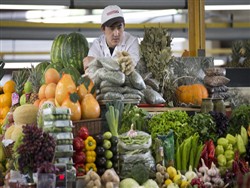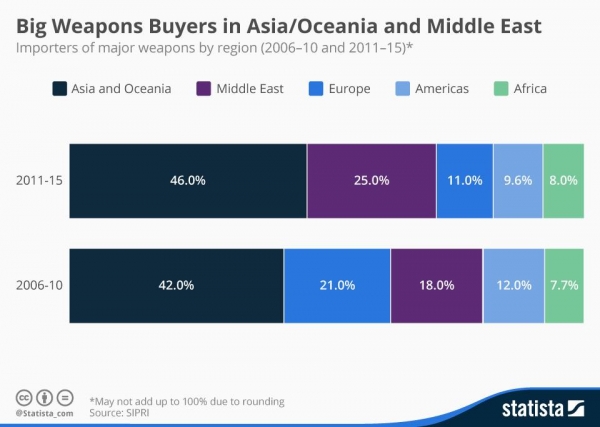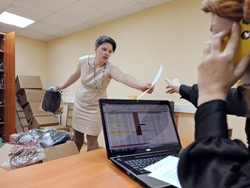German companies are increasingly bypassing economic sanctions against Russia, staging the production in the territory of that country or investing in their own factory.
Veronika Prokhorova
Jürgen könig (König Jürgen) he feels no fear before the words “crisis” and “sanctions”. Working in Moscow, where the downturn is felt in virtually all sectors, the head of the Russian representative office of the pharmaceutical group Merck remains optimistic. “Russia with its population of 140 million people — a huge market,” says könig. “And if we add to this figure and the population of the CIS countries, you get a whopping 280 million”.
Merck avoided the issue of sanctions side, collaborating with companies and Farmstandart Nanotek and engaged in the manufacture of medicines in Russia. In addition, the company invests heavily in staff training and new equipment.
Because of sanctions and poor economic situation in Russia, German exports to the country of Putin in 2015 has decreased, according to the Russian-German chamber of Commerce by 8.5 billion euros to 21 billion euros. Most affected industries such as the automotive and mechanical engineering, energy and electronic sector as well as agriculture. According to the chamber of Commerce, about 400 out of a total of six thousand German companies present on the Russian market, has “thrown in the towel”.
At the same time, according to a recent EY study, 80% of German companies are not willing to abandon plans for the Russian market. Those who remain, work the same way as Merck, starting or expanding production in Russia, according to the Committee on localization in the foreign trade chamber. As examples such companies as GEA (manufacturing freezer equipment), Bionorica (pharmaceutical), Siemens or Claas (agricultural machinery manufacturing).
All of these companies, despite sanctions, quite pleased with the development of its business in Russia: “In Russia a German company to get Europe’s largest market in need of extensive modernisation and has enormous potential for consumption among the population”, — said the Deputy head of the Russian chamber of Commerce Vladimir Nikitenko.
The company does not expect the improvement
However, from own production, German companies want not only to avoid sanctions but also to expand its share on the Russian market, as well as save on import duties and transport costs. In addition, in Russia in the tenders under the public procurement usually have the advantage of goods produced in the country. As more foreign investors invest in production in Russia, can count on subsidies, and investment contracts on special conditions, in particular, full or partial exemption from payment of taxes or other preferences.
The EU imposed economic sanctions against Russia in July 2014 because of the Ukrainian crisis, further tightening them in September of the same year. In March 2015, the European Council set the lifting of sanctions dependent on the implementation of the Minsk peace agreements. At the moment the sanctions are valid until 31 July 2016. Moscow, in turn, introduced until the end of August 2016 ban on the import of Western agricultural products, in particular fruit and vegetables, milk and meat. According to surveys of the Russian-German chamber of Commerce, German companies, however, do not expect a quick improvement of the situation.
German farmers already have been do business “on the spot”, because most of their import to Russia was banned in 2012. In 2012-2014 Russia were sent to Germany and other countries of the EU veterinary Commission with a view to identifying irregularities or errors, from the point of view of hygienic or sanitary control. Thus, gradually, almost all well-known German manufacturers of dairy and meat products was faced with the problem of the ban of exports to Russia.
Dairy group Ehrmann started the production in the suburbs 16 years ago. In the last year, he actively uses the Russian raw materials. To difficulties the company is no stranger: “From the very beginning of our activity in Russia we had to deal with fluctuating demand,” says Karin Schmid (Schmid Karin), assistant to the head of the Russian representation Ehrmann. Of Hochland Meggle and also turned out to be only partially affected by the Russian counter-sanctions because they were able to replace part of the ingredients for their products embargoed, Russian.
“It’s time for the localization of production”
Boinorica pharmaceutical company that manufactures, in particular, the drug Sinupret, going until 2017 to begin production in Voronezh, located about 500 kilometers South of Moscow. And company Novartis a few months ago opened a factory in St. Petersburg, the construction of which cost about 100 million euros. Firm AstroZeneca until 2017 plans to invest in the production of approximately 200 million euros. The company does not have its own production in Russia, cooperate, following the example of Merck, with Russian partners. So, cosmetic and chemical concern Henkel already has nine factories in Russia, the last of which was built in June of last year in Novosibirsk.
Firm GEA has established a joint production with Russian partners in Klimovsk, Moscow region, Kolomna, Voronezh. “Now is the time to localize production,” says the Chairman of the Committee on localization in the foreign trade chamber of Calin Anton. “Because of the falling ruble trade here has become cheaper, while exports from Russia became more profitable. In addition, Russia needs new technology, so German companies should be more flexible, so do not miss this chance to them”.
Carmaker Volkswagen already has its own plant in Kaluga (190 kilometres South-West of Moscow) and is constantly expanding the localization of production. According to the head of Daimler Dieter Zetsche (Dieter Zetsche), the purpose of his company is to establish its own production in Russia. Siemens has a factory near St. Petersburg, which produces gas turbines. In this production the company at the time invested € 275 million.
Agricultural producers are also interested in staying in Russia. Firm Horsch from the Bavarian town of Schwandorf intends to invest 6.5 million euros in expanding its production facilities in Lipetsk. In April, construction began on the new plant. Firm Ropa from the Bavarian Sittersdorf (Sittelsdorf) is also planning to expand the production of agricultural equipment in the Lipetsk until 2017. Amazone and the company will invest this year about EUR 2.5 million in a new plant of its Russian subsidiaries evrotekhnika in the Samara region.
Claas, in turn, already feels long ago in Russia a local manufacturer having production facilities in Krasnodar. This year is scheduled to sign a special investment contract with the Russian government. For this Class you will need to make additional investments in the amount of 9.5 million euros. Thus needs to be formally confirmed its status of the Russian manufacturer with guaranteed admission to the domestic market.
Under this contract Moscow offers immutable investment conditions and promises for ten years to include Claas machines in the program of public procurement. “Will it all just so we don’t know yet. But we hope to obtain equal rights with competitors under the current state incentive programs,” says the head of Claas in Russia Ralph Bendish (Ralf Bendisch).







